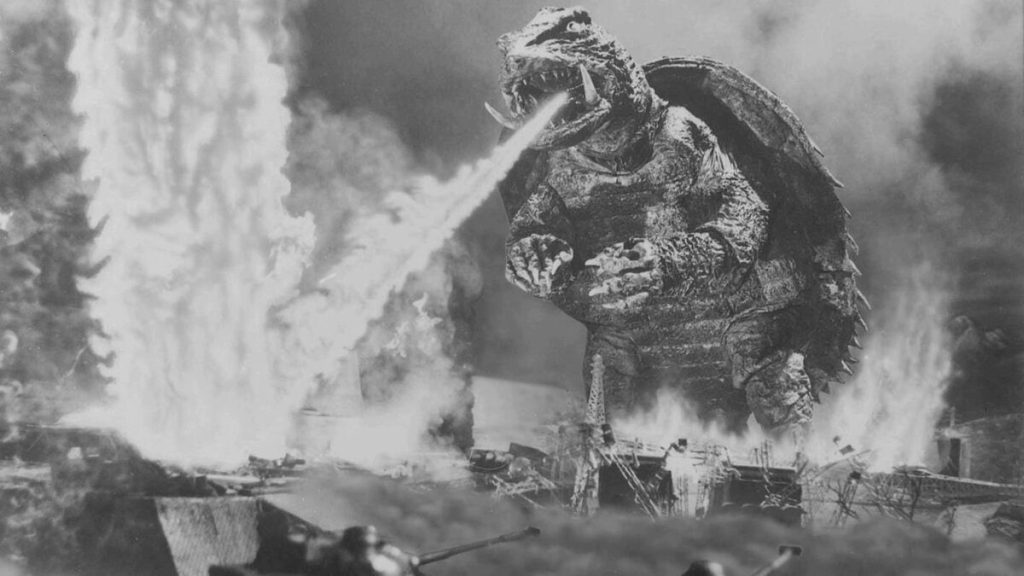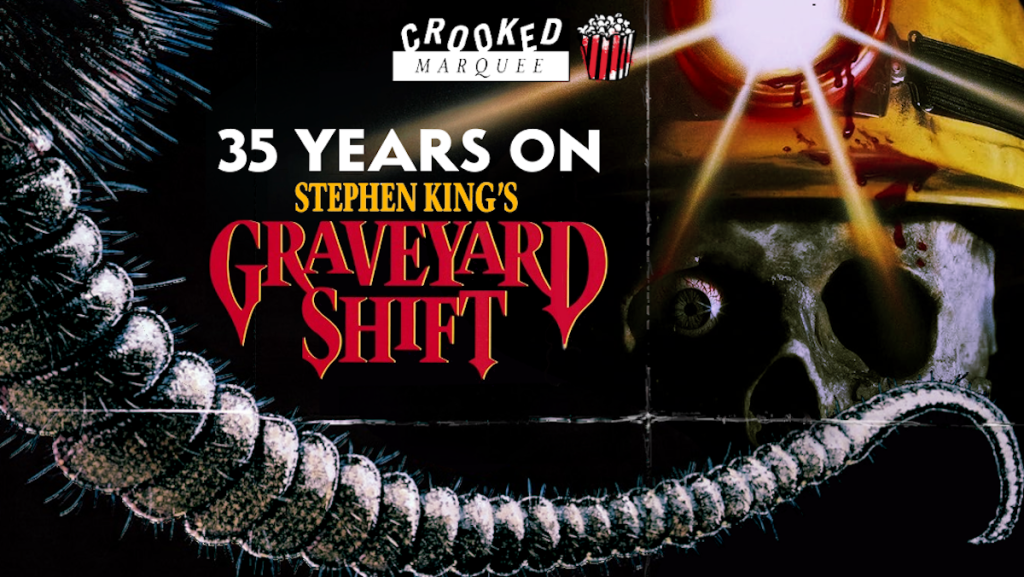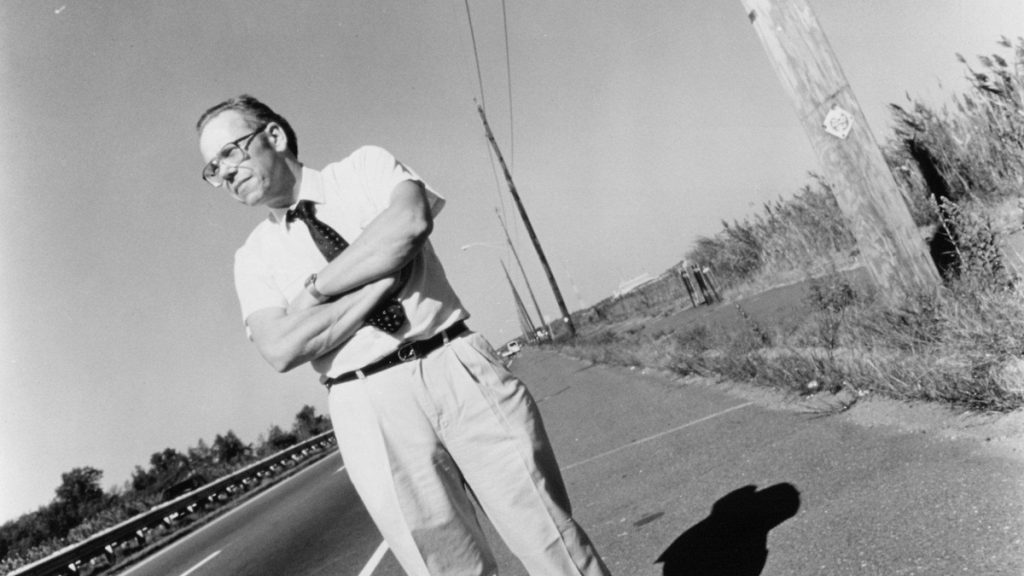Abel Ferrara is not a filmmaker with a positive view of humanity. His works are populated with crooked cops, tormented artists, and figures of the underworld who blur the lines between hero and villain beyond recognition. The urban landscapes of a Ferrara film push beyond urban grit and into something near-apocalyptic. It’s not just those within the frame who are on the verge of madness: annihilation is just around the corner for the entire world through Ferrara’s gaze. It made way too much sense for him to direct a vampire film. Who better to depict the torrid philosophical hellhole of life beyond life, of the endless pain of death and who has control over it, than the guy who made Bad Lieutenant?
In 1995’s The Addiction, Lili Taylor plays Kathleen, a philosophy PhD student who spends her days reading Nietzsche and watching documentaries about genocide. One night, she is attacked by a woman who bites her neck. Kathleen begins to develop symptoms of vampirism, although they also bear a striking resemblance to those of heroin addiction. Soon, she’s forcing her friends to try it out, shooting up blood with a syringe, and descending into a bitter war against life itself.
Vampirism has often been used as a metaphor for addiction, but The Addiction is the film that definitively connects it to drug dependency. There’s no glamor in this version of bloodsucking, which leaves Kathleen sweaty, sullen, and in spasms of withdrawal when she doesn’t feed. But even being sated doesn’t stop her body from rotting (in one scene, she casually yanks out one of her teeth to show her horrified friend.) The neck bites are brutal and painful, but it’s in watching Kathleen inject blood like a class-A substance that leaves you shuddering. Shot in stark black-and-white by cinematographer Ken Kelsch, the act is methodical and grimy, as far away from seduction as one could possibly get.
The only benefit vampirism provides, if it can even be called that, is a kind of mental clarity that reveals to Kathleen the true, unsalvageable hell of both the human race and her chosen profession of philosophy. Through the lens of this dual affliction, Ferrara (who had his own issues with drugs and wouldn’t get sober until the 2010s) offers a crash course on the pressing questions of our species: are we doomed to repeat our past? Is there such a thing as true justice in a world of atrocities like war and genocide? Can killing for sustenance truly be wrong when humans murder one another for far more frivolous reasons with impunity? Kathleen begins applying her philosophical studies to her attacks, goading her victims with insistences that they’re not resisting her come-ons hard enough. When Kathleen says to a sobbing victim, “My indifference is not the concern here, it’s your astonishment that needs studying,” it’s both chilling in its cruelty and pure pretension from a philosophy grad with no other hobbies. Justifying violence is actually pretty easy, even if you don’t know all the good arguments for doing so, but florid rhetoric and Heidegger quotes certainly help.

The only other vampires Kathleen encounters are Casanova (Annabella Sciorra), the vampish woman who attacked her, and Peina (Christopher Walken), who seems to have conquered his addiction and lives as close to humanity as he can. He tries to be Kathleen’s sober coach, chastising her for her weaknesses and recommending she read Naked Lunch, the ultimate book on heroin dependency and its horrors, to ease her pain, but it doesn’t work. The coven of sorts she forms through her victims comes together to celebrate her doctorate – vampirism is great for educational purposes, apparently, because espousing the violence she’s living gets her a PhD – but the ensuing bloodbath proves to be the tipping point. It’s her overdose moment.
For a filmmaker so devoted to exposing the rotten underbelly of reality, Ferrara has a fiercely moral backbone, so it seems inevitable that poor lost Kathleen finds herself, in the end of her life, drawn to the warm light of God. A priest administers last rites and the film ends with Kathleen visiting her own grave in the broad light of day. In voice-over, she says, “Self-revelation is annihilation of self.” In life/death, she chooses to reject her prior selfishness and addiction in favor of something grander. She’s born again. The moral order has been restored.
The Addiction posts that mankind’s greatest compulsion might be evil itself. In the face of centuries of history, of extensively documented violence and pain, we keep recreating these agonies but find new and colorful ways to justify them. You can use the fanciest rhetoric to wave away your crimes but the rot of your actions will stain you regardless. Is faith the only true salvation from this hell? Perhaps not, but Ferrara certainly believes that our addictions aren’t the be-all and end-all of us. That’s an optimistic stance for a filmmaker who never flinches at human degradation. Even nihilists can hope.
“The Addiction” is streaming on Arrow Player and Plex.



